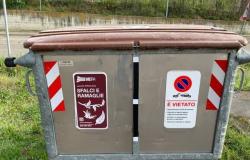With the #FundOurFuture campaign the organization urges the government to urgently align itself and respect international commitments
The analysis of Cassa Depositi e Prestiti’s energy portfolio, between national sustainability ambitions and international investments dominated by fossil fuels. The Mozambique case is striking. ActionAid’s complaint and appeal on the eve of the G7 Italian presidency
On the eve of the G7 Italian presidency, the Italian Government and the newly elected European Parliament cannot ignore the crucial role they have in the fight against the climate crisis. Investments in the energy sector, responsible for around 75% of greenhouse gas emissions, continue to favor fossil fuels over clean energy, allocating more resources to the causes of the climate crisis than to the solutions. With heavy repercussions especially on the countries of the global South.
Italy is 6th among G20 countries for public fossil fuel subsidies, behind Canada, South Korea, Japan, China and India, but ahead of the United States and Germany. During the G7 Environment meeting in Venaria last April, the importance of aligning financial flows with the objectives of the Paris Agreement was reiterated, committing to put an end to new public support directed at the fossil fuel sector.
During COP26 in Glasgow, Italy launched the Italian Climate Fund and signed the Declaration on international public support for the clean energy transition, pledging to abandon fossil fuels within one year: a commitment that continues to be disregarded.
Not only that, the Government is advancing its ambition to transform Italy into a energy hub based on gas, also using the Italian Climate Fund (4.4 billion euros). The Fund, designed to contribute to the fight against climate change, risks being used for the opposite purposes. The first officially allocated contribution from the Fund, in fact, will be used to finance ENI’s biofuels supply chain in Kenya.
“The entire international community is looking carefully at the decisions that will be taken during the G7, hoping for a real change towards a more sustainable future. However, the concentration of public subsidies for fossil fuels remains worrying. Italy, like many other countries in Europe and around the world, seems to adopt a “resistant” attitude, where agreements are watered down and public policies already established, such as the European Green Deal, are scaled back. It is therefore crucial that the commitments already made are maintained and that Italy equips itself with adequate tools and financial resources to effectively address the climate crisis” declares Marco De Ponte, General Secretary of ActionAid Italia.
The role of Cassa Depositi e Prestiti and the Mozambique case
Over 80% controlled by the Ministry of Economy and Finance, Cassa Depositi e Prestiti is a national promotional bank and a development financial institution that should adopt advanced tools to detect and prevent risks. However, the analysis commissioned by ActionAid Italia with the help of ECCO Think Tank, at Perspective Climate Research highlights how CDP’s international energy portfolio is not at all aligned with the Paris Agreements – with a rating of only 0.22 points out of 3 , lower even than that of SACE.
The gap between national sustainability ambitions and international investments in the fossil sector is crucial in the evaluation; in addition to holding a significant stake in ENI (27.7%), Cassa Depositi e Prestiti does not join partnerships for the reporting of greenhouse gas emissions from its operating activities and does not impose explicit bans on investments in coal, oil and fossil gas. From 2016 to 2022 only a third of the 3 billion euros of its energy portfolio was allocated to clean energy projects, mainly (70%) in Italy, while almost 80% of fossil investments are concentrated abroad, with projects controversial such as the one in Mozambique (569 million euros) in 2020.
In fact, although Mozambique is among the top ten countries in the world for gas reserves – and together with Egypt represents over 60% of CDP’s international energy portfolio in fossil fuels – it remains one of the countries with the lowest level of human development according to the United Nations. In fact, the exploration of new gas sources has contributed to destabilizing an already fragile political context: since 2017 the country has been grappling with an armed insurrection fueled by natural resource interests in the province of Cape Delgado, which has forced over 700,000 people to evacuate, depriving them of their means of subsistence. The local government has declared that it has no funds to deal with the crisis, while the United Nations needs 400 million dollars to assist the population, but has so far received commitments for only 5% of this amount.
Recommendations to the Italian Government
Through the international campaign #FundOurFuture, ActionAid calls for an end to investments in fossil fuels and industrial agriculture. In Italy, the focus is on the contribution that the Government, through Cassa Depositi e Prestiti, can provide to the global energy transition. With Italy as president of the G7, it is imperative to take rapid measures to align with the objectives of the Paris Agreement and maintain international commitments already made as well as eliminating public financing of fossil fuels, in line with the Net Zero 2050 roadmap of the International Energy Agency, and prevent the Italian Climate Fund from being used to finance gas extraction in Africa, since such activities do not favor either energy cooperation or Italian energy security.



